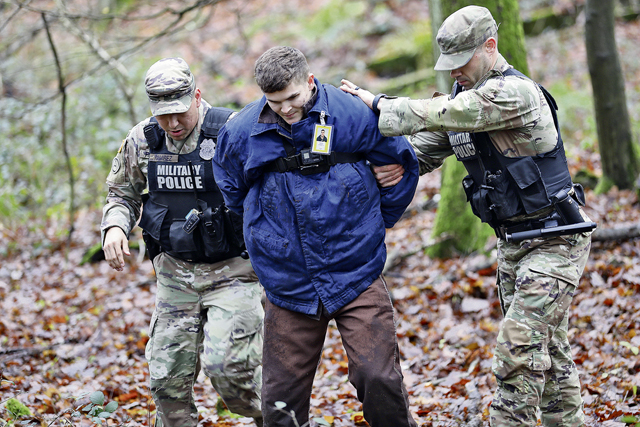
Testing the capabilities of Soldiers guarding prisoners at Europe’s only correctional facility as well as strengthening military and host-nation cooperation came into play during an exercise here in vicinity of the Sembach Correctional Facility.
The Missing Prisoner Emergency Action Plan Exercise tested U.S. Army Correctional Activity-Europe’s ability to trace, capture and return Soldiers to the facility. This is the first full-size exercise conducted at this facility to test the readiness of the facility’s military and partner organizations.
The exercise involves multiple units from the local area including U.S. Army Garrison Rheinland-Pfalz’s Directorate of Emergency Services, Combined Military Working Dog Detachment-Europe and the Kaiserslautern Polizei.
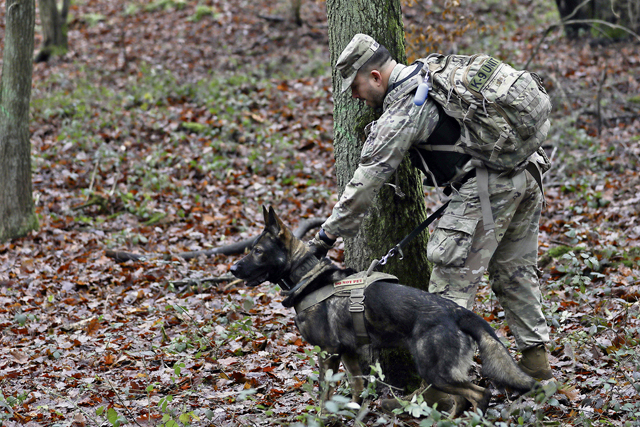
During the exercise, correctional-facility cadre monitored three Soldiers who were simulating prisoners conducting area beautification outside of the facility’s containment area. During this time a Soldier fled custody of the cadre to attempt escape.
The facility’s operations chief said the ability to react to scenarios like these is key to a ensuring the security of the prisoners and the outside community.
“Our team is ready to react and has plans in place in the very unlikely event a prisoner was to escape our cadres custody,” said Sgt. 1st Class Davon Watkins, correctional facility operations chief. “We immediately lockdown the facility, establish an emergency operations center, deploy a search party and coordinate with local partners for help.”
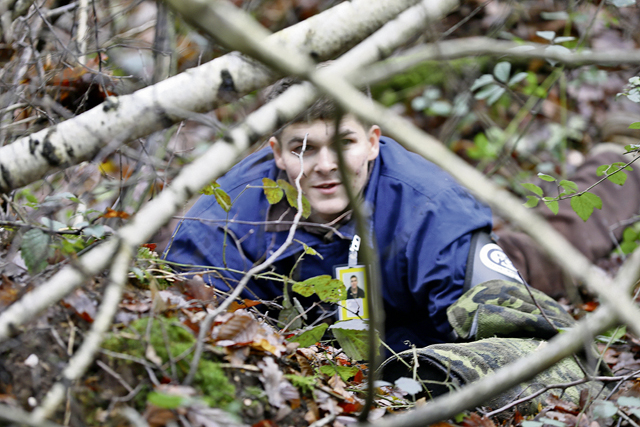
Once the emergency action plan is activated, the cadre and senior leaders in the facility begin contacting multiple community organizations to assist in catching the missing prisoners. Watkins said the cooperation between all units is essential.
“Events of this scope require that we are able to seamlessly work with multiple military organizations and our host-nation Polizei partners,” said Watkins. “We all must be able to work within the systems each party has in place, and this exercise allows everyone involved to learn how each organization operates so in the event there is an emergency we are familiar with all systems and policies.”
In the end, the combined team of Soldiers, a military working dog, DES officers and Polizei caught the fleeing prisoners and returned them to the facility. While there were adjustments and challenges, Watkins called the exercise a success.
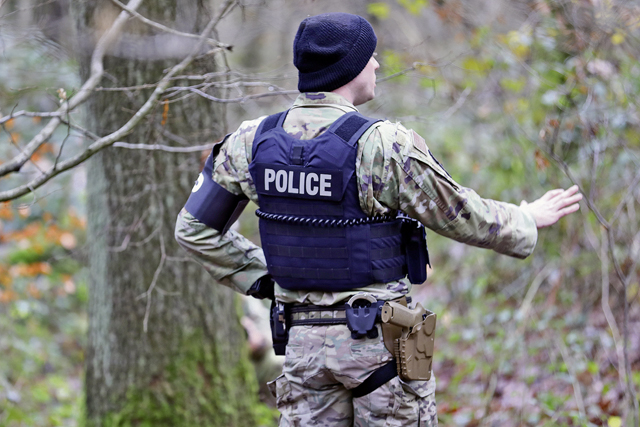
“This exercise was a resounding success and met and exceeded every expectation we had,” he said. “Any challenges we faced we overcame quickly and adjusted well. In the end this was a great learning tool for us that we will take back to our teammates and will do even better next time.”
The missing prisoner exercise allows the correctional facility to coordinate emergency measures with local partners within minutes of an emerging event occurring and is important since all organizations have different law enforcement roles throughout the community.
“It is important to emphasize that the responsibility for security in the West Palatinate is not only the duty of the police alone but is a shared task that we carry together,” said Bernhard Christian Erfort, Kaiserslautern Polizei police spokesman. “The U.S. Armed Forces and their members have proven themselves not only as defenders of our freedom, but also as committed members of our community.”
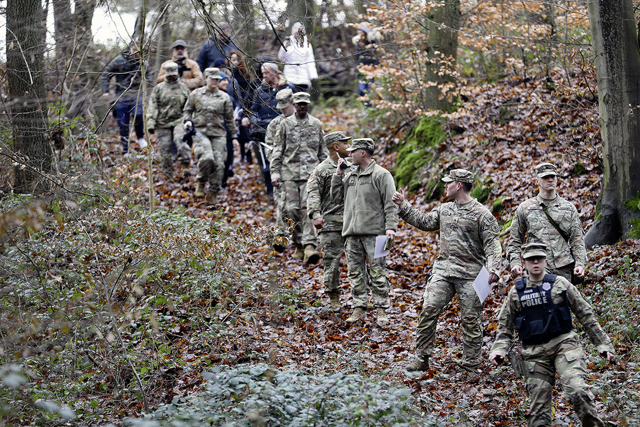
U.S. Army Correctional Activity-Europe exercises command and control of all U.S. military service members in Europe and Africa awaiting trial or serving time for crimes committed. The facility falls under the 21st TSC’s area of responsibility under the 18th MP Brigade.
This scope of this exercise created buzz from media throughout Germany with a slew of media outlets interested in the facility’s crucial mission of the U.S. Army’s only correctional facility in Europe.
“The media attending events like this not only shows what our units are doing but allows the local community to see firsthand the scope of work the Army does with our host nation partners,” said Maj. Vonnie Wright, 21st Theater Sustainment Command public affairs officer. “We want to be able to highlight the work of the 18th Military Police Brigade, the correctional facility, our German Allies and the 21st TSC any time we have the opportunity.”
Noting the exercise’s success and praising his team’s readiness, U.S. Army Correctional Activity-Europe senior enlisted leader Sgt. Major Marcus Mitchell said his team should take pride in the results and the partnership they have built with their host-nation colleagues.
“This exercise is a win for the facility, the 18th MP Brigade, the 21st TSC and the Army Corrections Command,” he said. “Our team here at the United States Army Correctional Activity Europe performs their duties at the facility in Sembach 24 hours a day 7 days a week. It is critical and mandated that we exercise scenarios like this internally and with our local German and American partners who would participate and assist with this type of event. I am extremely proud of their efforts and the teamwork they showed throughout the exercise to get the job done.”


